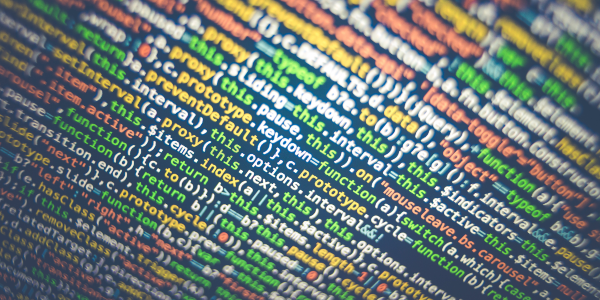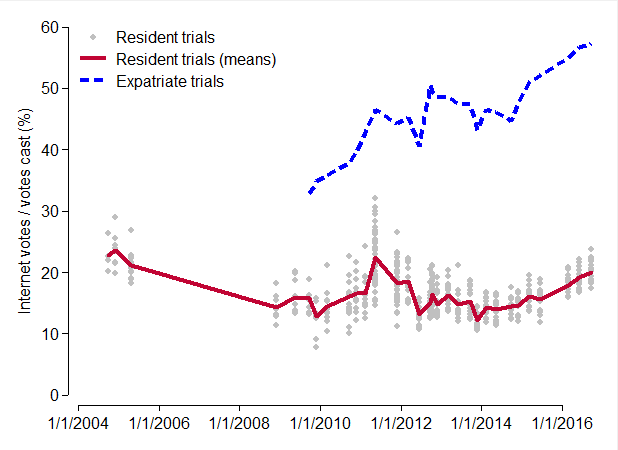How internet voting could help to make more votes count
Trials for online voting have been introduced in a handful of countries, and the evidence for whether it can improve access to voting and turnout is still sparse. However, looking at the case of Geneva canton, Micha Germann argues that there is a potential further benefit: online voting platforms can be designed to help voters avoid inadvertent ballot errors, and so reduce ‘lost votes’.

Picture: Markus Spiske on Unsplash
Pundits and political scientists often raise concerns about decreasing electoral turnout. However, more frequently overlooked is the fact that even if citizens participate in elections, their votes do not always enter the final tally. Comparative evidence suggests that between 3% and 5% of votes cast remain uncounted (that is, they are ruled blank or invalid) in the average democratic election. Uncounted votes can reflect the actual will of voters (for example, when they cast a protest vote). But in other cases, votes remain uncounted because voters failed to mark their ballots correctly. These voters wanted to make their voices heard, but they have no influence on electoral outcomes.
Votes can get invalidated for a variety of reasons. Uncertainty about electoral rules can lead voters to vote for more candidates than are allowed under the rules. For example, surprising numbers of US voters cast two votes in presidential elections, one for the presidency and another for the vice-presidency. Especially if there are many races on a ballot, voters may also skip one or more of the contests just as an oversight.
In a recent article in Political Behavior, I provide new evidence that internet voting can reduce the number of votes that have to be invalidated because of voter mistakes. Internet voting allows voters to cast their votes remotely online. It is currently practised in Estonia and parts of Australia, Canada and the US, among other countries. Advocates of internet voting usually point to its potential to increase voter turnout. Voting becomes less burdensome, especially for voters with mobility issues. Young voters are also commonly expected to turn out in larger numbers if internet voting were made available, though the evidence on this is not clear.
Another possible, less frequently discussed, benefit is that internet voting allows for technological fixes that would prevent voters from making mistakes on their ballot. Paper ballots remain the most common voting method today. But when equipped with a pen and piece of paper, there is little standing in the way of voters making avoidable errors. Electronic voting systems can easily prevent errors by, for example, making it impossible to cast more votes than are allowed under the rules.
My study suggests that internet voting can be an effective remedy against ‘lost votes’. The evidence comes from the case of Geneva canton in Switzerland. Unusually, Geneva canton has more than 15 years of experience with internet voting, having first trialled it in 2003. Even more importantly, though, Geneva’s internet voting trials took the form of a near-natural experiment.
Since the outset, Geneva has been bound by federal safety legislation that prevented the canton from offering internet voting to all its citizens. To conform with this legislation, the canton for many years offered the option to vote online only in some of its 45 municipalities. In turn, this allows to estimate the effect of internet voting on voter error rates with a high degree of certainty using a technique called ‘difference-in-differences’.
The findings suggest that the number of uncounted ballots, measured as a share of all votes cast, was around 0.3 percentage points lower if a municipality offered online voting in addition to paper ballots. This may not seem earth-shattering, and it clearly is not. In additional analyses I also find no evidence that the reduction in error rates affected electoral outcomes. However, internet voting was far less popular in Geneva canton than one might have assumed.
Figure 1: Rates of internet voting in Geneva canton since 2004

On average only around 20% of voters made use of online voting where they could (see Figure 1). The likely reason is that voters in Geneva could always also submit their votes by mail, which is also convenient. Had more voters voted online, internet voting would likely have caused a much larger dent in voter error rates.
What is more, my findings suggest that internet voting led to a considerably higher reduction in uncounted ballots specifically for regional measures, i.e. cantonal referendums (-0.5 percentage points). The most likely reason is that Geneva’s internet voting system asks voters to review their choices before the final submission. This decreases the chance that voters unintentionally skip voting on regional measures, which are located towards the bottom of conventional ballot papers.
Importantly, all these results refer to referendum votes. Usage of internet voting in the context of elections has been too sparse in Geneva canton for any robust conclusions. However, there are few reasons to expect that the results would not generalise to elections, which often involve much more complex rules and, consequently, more potential for mistakes.
Overall, then, these are promising results. While some prior studies of electronic voting machines have come to similar conclusions, the results have overall been mixed. The findings of this study are based on an improved research design that allows us to say with increased certainty that internet voting and electronic voting more generally can reduce avoidable voter mistakes.
Nevertheless, it is important to note that the results of this study cannot, and should not, be read as a blanket recommendation of internet voting. In particular, that is because internet voting poses unique challenges for the security of elections which, according to many IT experts, have not yet been satisfactorily resolved. However, assuming adequate solutions can be found, this study suggests that internet voting can make a valuable contribution to the functioning of democracy by making sure that votes are counted as intended.
This article gives the views of the author, and not the position of Democratic Audit. A version of this article is also published on the Political Behavior blog, and it draws on the author’s article, ‘Making Votes Count with Internet Voting’, published in Political Behavior.
About the author

Micha Germann is a Prize Fellow in Political Science at the University of Bath.





 Democratic Audit's core funding is provided by the Joseph Rowntree Charitable Trust. Additional funding is provided by the London School of Economics.
Democratic Audit's core funding is provided by the Joseph Rowntree Charitable Trust. Additional funding is provided by the London School of Economics.